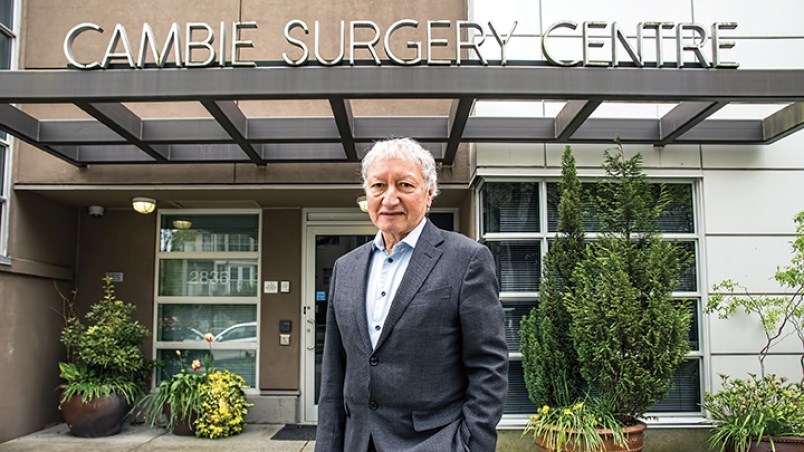The COVID-19 pandemic has disrupted B.C.’s health-care system, forcing 16,100 scheduled surgeries to be indefinitely postponed, with an estimated 28,000 to 30,000 postponements expected by the third week of May, according to B.C. Health Minister Adrian Dix.
The timeline for getting back to normal is anyone’s guess, but Provincial Health Officer Dr. Bonnie Henry says there is a plan.
If it is like Ontario’s road map, opening up surgeries will be one of the first things to take place when restrictions loosen.
Some cancer patients have had surgeries cancelled in B.C., but Henry said “many” cancer-related surgeries have been done.
“There are [surgeries] that are very time sensitive, where we know that there can be a dramatic decrease in either people’s well-being or an increase in mortality if they don’t get surgeries within a certain period of time,” she said on Thursday. “Obviously, those ones are prioritized.”
Henry added that when the province starts prioritizing surgeries, it will also take into consideration how those operations affect its critical-care resource stockpile.
Making sure there are sufficient resources to treat a potential surge in COVID-19 infections is important in saving lives, she said.
“There is a balancing act, and there has been a lot of thought going into it.”
Henry added that many conditions can be managed medically for a long time before surgery is required, so that is also a factor in determining who moves to the front of the queue.
Of the 14,597 surgeries completed in B.C. between March 16 and April 26, 8,767 were urgent scheduled surgeries, said Dix.
Joint replacements may also be among the first of the postponed surgeries to be performed because they require different doctors and separate operating rooms, said Brian Day, Cambie Surgery Centre’s medical director and a past president of the Canadian Medical Association.
What ailments will be tended to first is impossible to say, Day explained, adding that any decisions on which ones to perform before others will be a painful exercise in prioritization.
“The job of prioritizing, when you have 10 people who all need something and they are in pain, is very difficult,” he said.
One change is that when surgery scheduling resumes, all health practitioners are likely to be wearing personal protective equipment (PPE) that exceeds the safety standards that were in place pre-pandemic, he said.
While surgical masks were always worn, the future is likely to involve more plastic face shields, for example, instead of simple surgical masks, Day said, adding that the number of surgeries will therefore depend on the health-care system’s supply of that equipment.
Dix said on Wednesday that B.C.’s health-care system has more than 3.17 million N-95 masks and more than one million other face shields. There are also almost five million pairs of gloves.
One challenge will be B.C.’s comparatively low number of hospital beds, which Day said lags behind the per-capita number in other developed countries and causes long waiting times for surgeries.
Government data shows occupancy in B.C. hospitals has fallen to around 63% from 103%.
“Wait times will go up significantly,” agreed Raymond McConville, a family physician and the infection control officer at Copeman Healthcare Centre.
“There is going to be significant morbidity and mortality associated with the pandemic that is not because of COVID-19.”
McConville added that his own colonoscopy was cancelled a couple weeks ago, and he has no idea when it will go ahead.
His centre continues to operate for urgent visits, but 90% of its 20 physicians are conducting patient visits online.
When non-urgent on-premises visits resume, fewer will be scheduled per day, because many will continue to be conducted online. That will allow for more social distancing in the clinic.
Clinic visits also depend on Copeman’s doctors, nurses, dieticians and other health-care providers having sufficient PPE.
The company has a five-week supply if five sets of equipment are used per day.
Read more from



